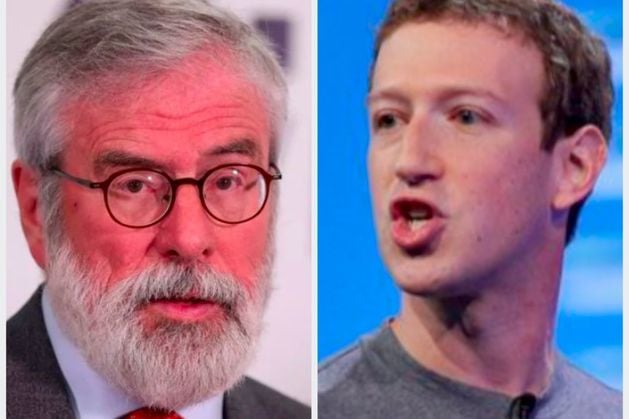Gerry Adams in Discussion with Solicitor Over Unauthorized Use of His Books for AI Development

Allegations Against Meta Over Copyrighted Works
Introduction to the Controversy
Recent reports have emerged surrounding Meta, the parent company of social media platforms like Facebook and Instagram, suggesting that it has utilized numerous copyrighted books, including works by former Sinn Féin leader Gerry Adams, to develop its artificial intelligence systems. The Society of Authors (SoA) has called attention to Meta’s actions, asserting that these practices threaten the livelihood of authors and violate intellectual property rights.
Gerry Adams Speaks Out
Gerry Adams, who has a notable history as a politician and author, indicated that several of his books have been used without permission by Meta. He stated, "Meta has used many of my books without my permission. I have placed the issue in the hands of my solicitor." The titles that he claims were appropriated include:
- The Street and Other Stories
- Before the Dawn: An Autobiography
- Cage Eleven: Writings from Prison
- The Negotiator’s Cookbook – Best Kept Secret of the Irish Peace Process
- A Farther Shore: Ireland’s Long Road to Peace
- Falls Memories: A Belfast Life
- Hope and History: Making Peace in Ireland
These allegations highlight a broader concern about how AI technologies are being trained on copyrighted material, potentially undermining the rights of authors and their creations.
The Role of the Society of Authors
The Society of Authors is a union that advocates for writers, illustrators, and translators. Its chairperson, Vanessa Fox O’Loughlin, has expressed strong disapproval of Meta’s actions, labeling them as “illegal, shocking, and utterly devastating for writers.” O’Loughlin further emphasized that creating a book requires extensive time and effort, and that Meta’s use of such works threatens to devalue the labor of authors, suggesting that it could ultimately drive them out of business.
Meta’s Response to Criticism
In light of the growing uproar from the literary community, a spokesperson from Meta responded by asserting their commitment to intellectual property rights. They insisted that their methods of using data to train AI models comply with existing laws. However, many authors and advocates remain unconvinced, highlighting the lack of compensation or acknowledgment for the creators whose works have been utilized without authorization.
Protests and Public Outcry
In reaction to Meta’s perceived infringement of copyright, numerous authors and supporters held protests outside the company’s London offices. This show of solidarity exemplifies the collective frustration felt within the writing community regarding the exploitation of their work for corporate gain, particularly in the realm of artificial intelligence.
Authors Call for Government Intervention
Authors are increasingly vocal about the need for governmental intervention to protect their rights. Many believe that the current legal framework does not adequately address the complexities of AI technology and copyright laws. Abie Longstaff, an author and SoA member, reiterated the sense of helplessness among writers. She pointed out that AI models, which analyze and replicate patterns in writing, pose a unique threat to the originality and authenticity of authors’ voices.
The Impact on Adam’s Legal Battles
Beyond the AI and copyright controversy, Adams is engaged in multiple legal disputes. He is set to present evidence next year in a civil case initiated by three victims of IRA bombings. Despite his attempts to disassociate himself from the IRA, he has faced ongoing challenges related to his past, including a defamation suit against the BBC for claims linking him to a murder. Furthermore, he continues to contest the UK Government over his past internment without trial during the Troubles.
The current issues surrounding Meta’s use of copyrighted material highlight significant challenges at the intersection of technology, creativity, and authors’ rights. As discussions persist, the outcomes could shape the future landscape of AI and how it interacts with creative industries.






